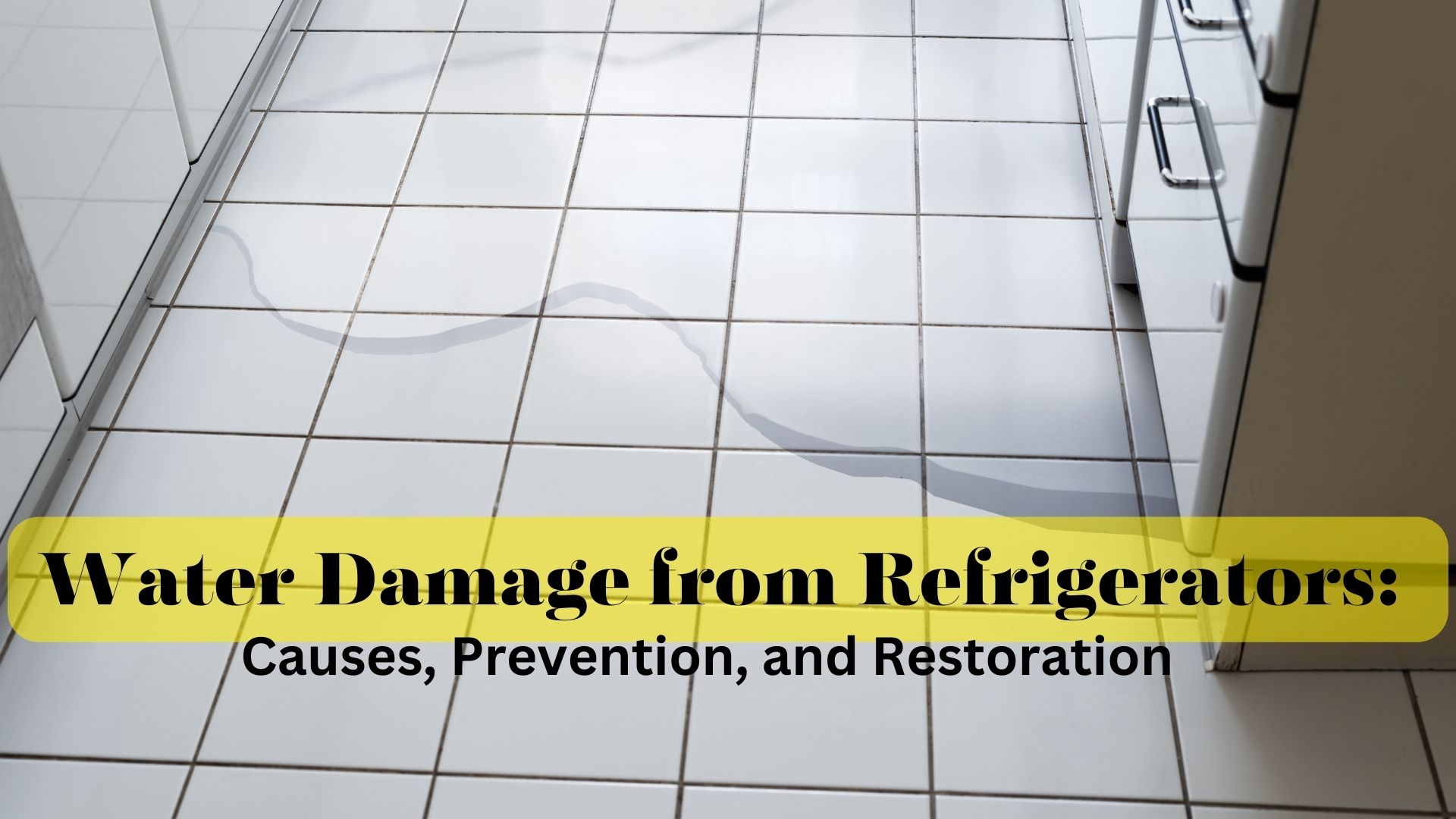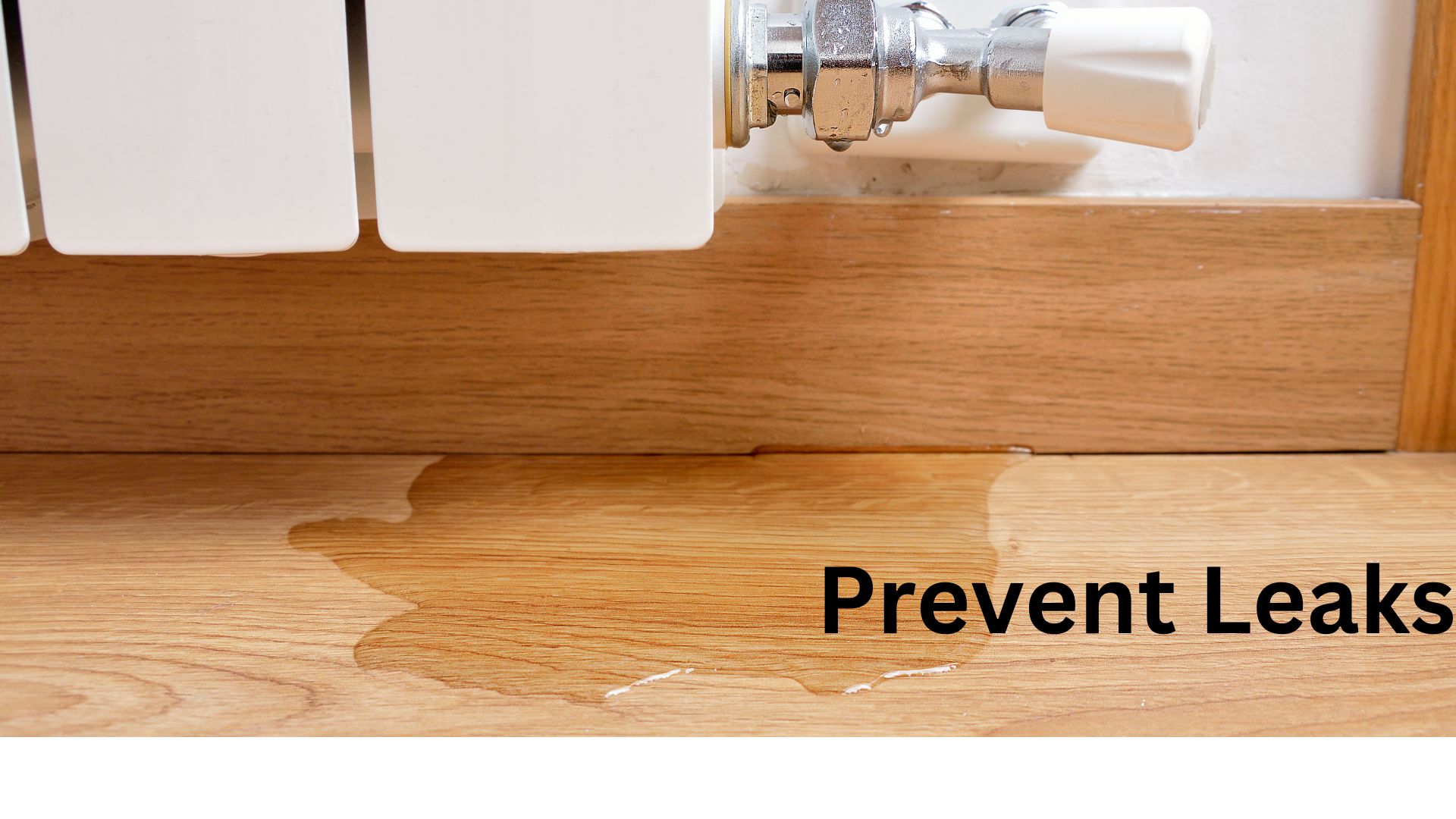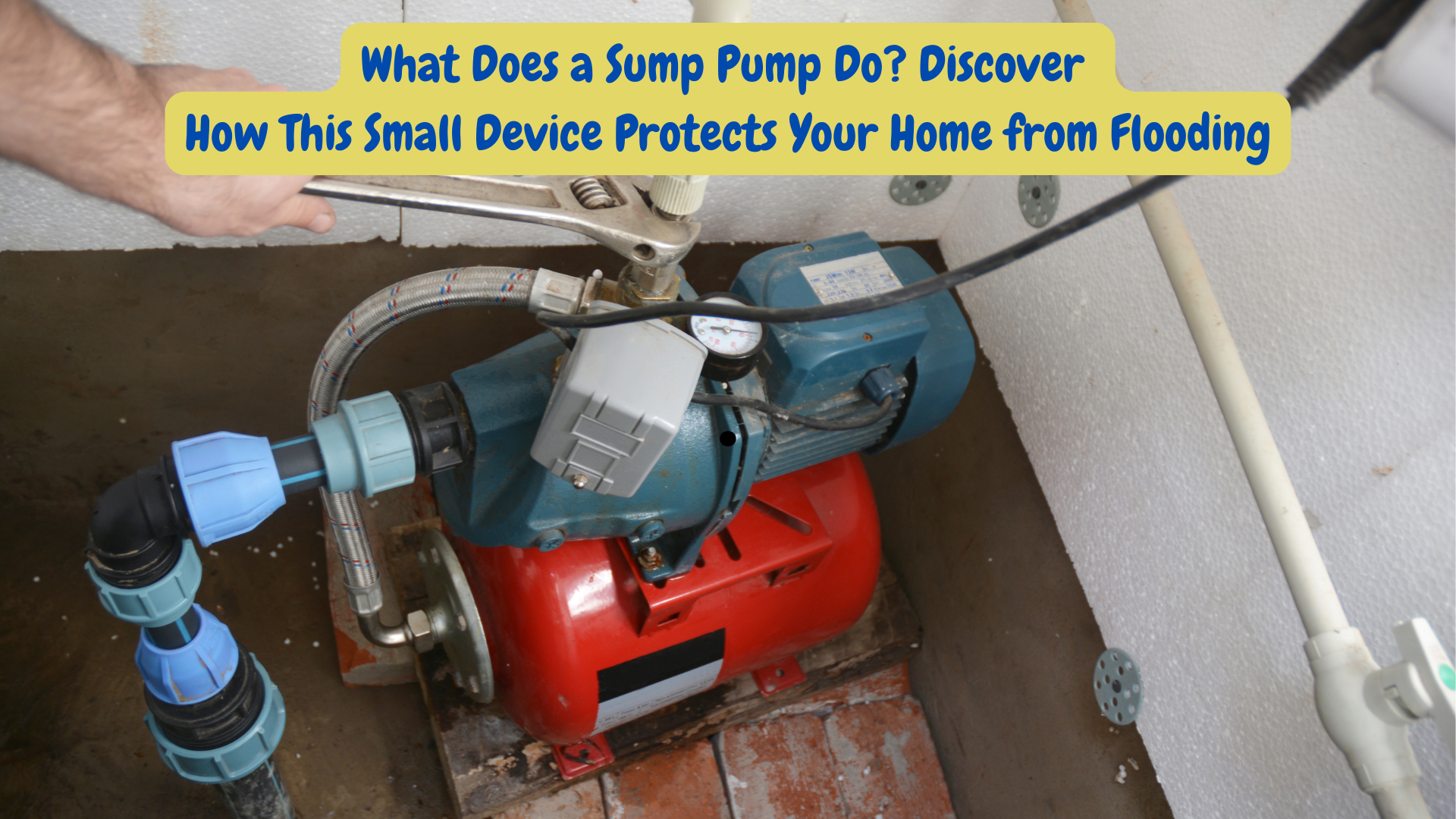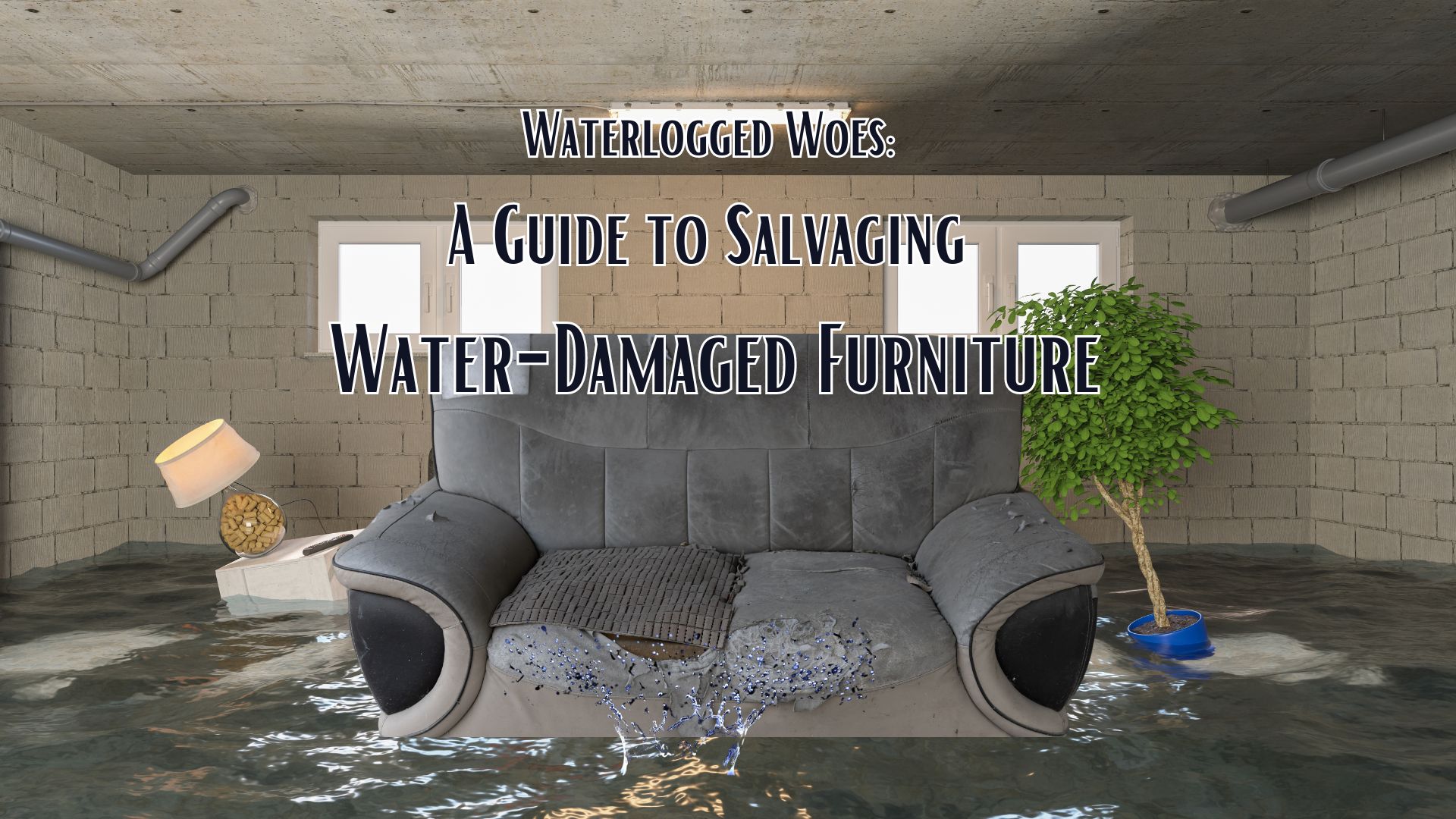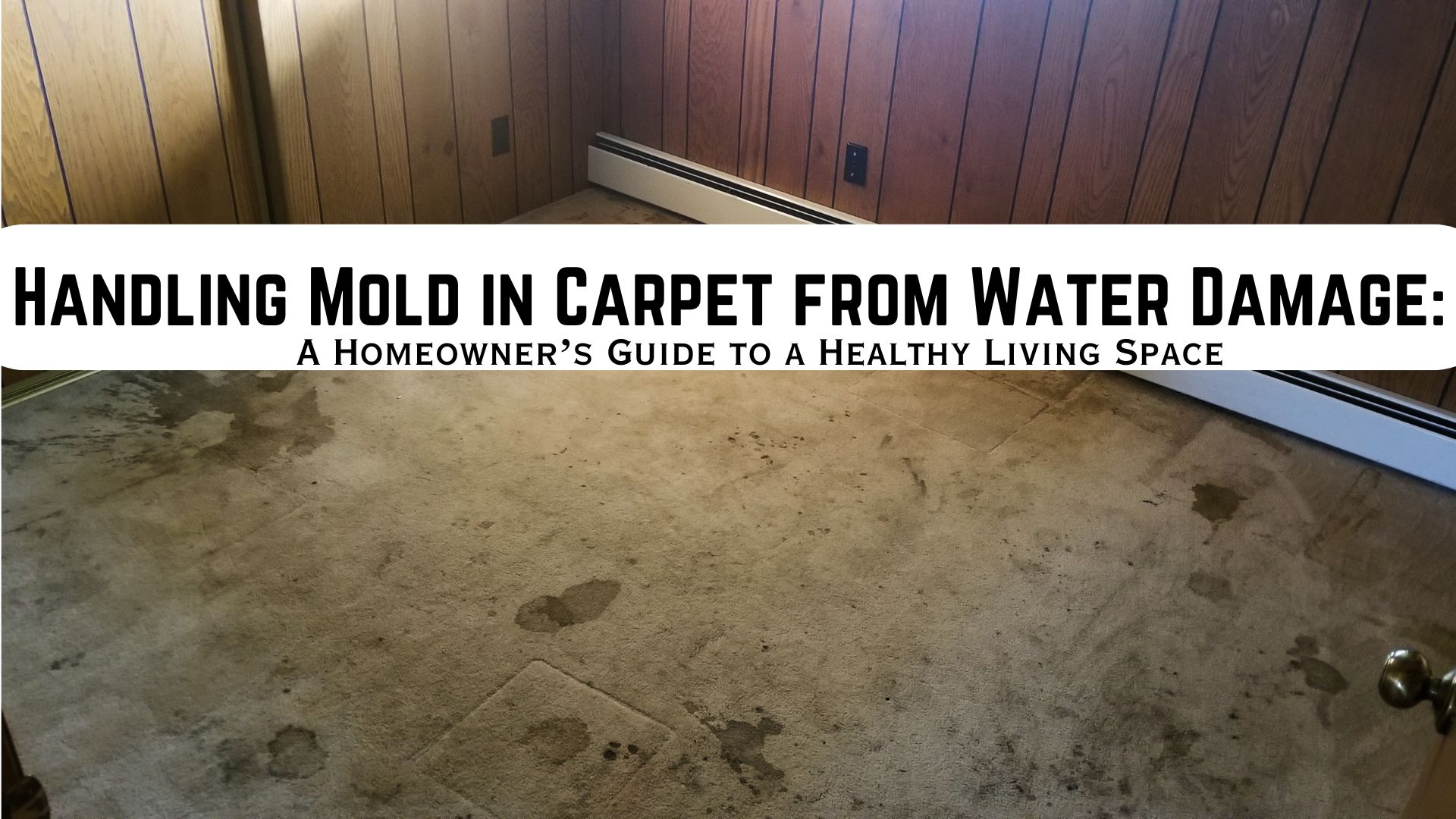Refrigerator Water Damage
Water damage from refrigerators can be a household nightmare, causing both structural and financial concerns. Whether it’s a slow, unnoticed leak or a sudden gush of water, the effects of refrigerator-related water damage can be far-reaching, affecting your flooring, walls, and potentially even your home’s foundation.
Prevention is the key to avoiding these issues, but if water damage does occur, quick and thorough action is essential to minimize the damage and get your home back to its optimal condition.
Causes of Water Damage from Refrigerators
Understanding the causes of water damage from refrigerators is crucial for effective prevention and restoration. Below are some common culprits:
- Refrigerator Leak
One of the primary causes of water damage from refrigerators is a leak. This leak can originate from various sources within your fridge. The most common culprits include the ice maker, water dispenser, and the refrigerator’s water supply line. These leaks can lead to water seeping onto the floor and causing extensive damage.
- Blocked Defrost Drain
In many cases, a blocked defrost drain can result in water damage. The defrost drain is responsible for carrying excess moisture away from your refrigerator. When it gets clogged with food particles or ice, it can cause water to pool inside the fridge, leading to leaks and potential damage.
- Water Filter Issues
If your water filter is not properly installed or is malfunctioning, it can lead to water leaks. The water filter’s job is to ensure that the water entering your refrigerator is clean and free from contaminants. A faulty filter can cause water to leak inside the fridge and onto the floor.
- Working Harder in Warm Weather
Refrigerators work harder in warm weather to maintain a cool temperature. This extra effort can sometimes result in condensation forming on the refrigerator’s coils and other components. When this condensation drips down, it can lead to water damage.
- Door Not Closed Properly
A common issue that can lead to water damage from refrigerators is when the refrigerator door is not closed tightly. This allows warm air to enter the fridge, causing condensation to form. The condensation can then drip onto the floor, potentially causing damage.
Prevention Measures
Preventing water damage from refrigerators involves a combination of routine maintenance and vigilance. Here are some preventive measures you can take to prevent water damage from refrigerators and safeguard your home:
- Regularly Check for Leaks
Regularly inspect your refrigerator for any signs of leaks. Be sure to examine the ice maker, water dispenser, and water supply line for any visible issues. If you notice a refrigerator leak, address it promptly to prevent further damage.
- Clean and Maintain the Defrost Drain
To prevent water damage from a blocked defrost drain, it’s essential to keep it clean and free from obstructions. You can do this by using a turkey baster to flush it out with warm water. Regular maintenance will ensure the drain functions correctly.
- Replace Water Filters on Schedule
Replace your refrigerator’s water filter according to the manufacturer’s recommendations. This ensures that your filter remains effective in preventing water contamination and leaks.
- Keep the Refrigerator Door Closed
Make it a habit to close the refrigerator door properly. Ensure it’s tightly sealed to prevent warm air from entering, which can cause condensation and water damage. Additionally, check the door gasket for any signs of wear or damage and replace it if necessary.
The drain pan is located underneath your refrigerator and collects water that condenses on the coils. Regularly remove and clean the drain pan to prevent it from overflowing and causing water damage from refrigerator.
Water Damage from Refrigerator:
Steps for Water Damage Restoration
If, despite your best efforts, your refrigerator causes water damage, it’s essential to act quickly to mitigate the situation and restore your home. The following steps below are for water damage restoration:
1. Disconnect the Refrigerator
First, unplug the refrigerator to ensure your safety. This step is crucial to prevent electrical hazards while addressing the water damage.
2. Remove the Water Source
If there is a continuing leak from your refrigerator, such as a malfunctioning water dispenser or ice maker, turn off the water supply line to stop the flow of water.
3. Clean and Dry the Affected Area
Use towels, mops, or a wet/dry vacuum to remove excess water from the floor and surrounding areas. Thoroughly dry the space to prevent further damage and mold growth.
4. Inspect for Mold and Mildew
Check for signs of mold and mildew growth in the affected area. If you detect any, it’s essential to address it promptly to prevent health issues. Consider using a mold and mildew cleaner to eliminate the problem.
5. Repair or Replace Damaged Materials
Depending on the severity of the water damage, you may need to repair or replace damaged materials such as drywall, insulation, and flooring. Be sure to consult with a professional if the damage is extensive.
6. Reconnect and Test
After addressing the water damage from refrigerator, reconnect the refrigerator and test it to ensure that the issue has been resolved. Check for any remaining leaks and verify that the appliance is functioning correctly.
7. Schedule Professional Inspection
If you’re unsure about the extent of the damage or if you’re dealing with mold or mildew issues, it’s advisable to schedule a professional inspection. A water damage restoration specialist can assess the situation and provide guidance on necessary repairs.
Water Damage from Refrigerator: Seek a Water Damage Professional
Water damage from a refrigerator can be a frustrating and costly issue to address, but with proper prevention measures and swift action in the event of a leak, you can minimize the impact on your home. Regular maintenance and vigilance are key to keeping your refrigerator in good working order and preventing water damage.
In case of any water damage, follow the restoration steps outlined above to safeguard your home and maintain the longevity of your trusty refrigerator model. Keep in mind that a small amount of maintenance now can spare you from significant issues in the future.
When facing water damage from your refrigerator, the expertise of a water damage professional is invaluable. They possess the knowledge and tools to assess the extent of the damage, address hidden issues like mold growth, and provide efficient restoration, ensuring your home is safeguarded from long-term consequences.
Don’t underestimate the importance of a professional’s guidance and assistance in restoring your peace of mind and your home. Call Superior Restoration, today!

